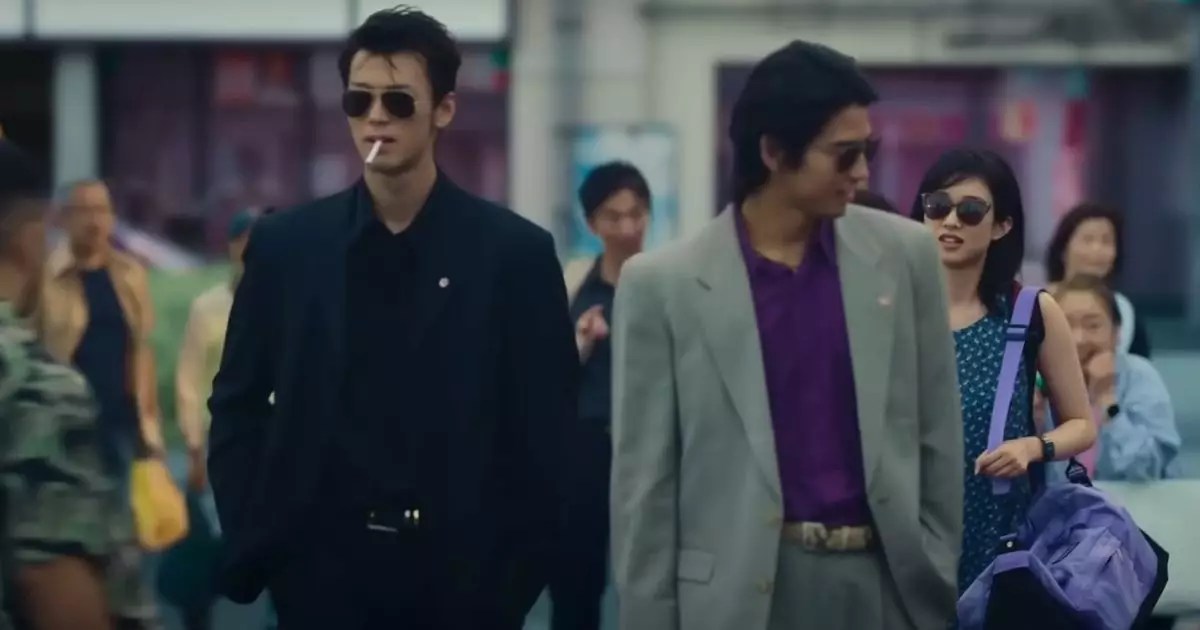The highly anticipated television adaptation of the beloved “Yakuza” video game series, now rebranded as “Like A Dragon: Yakuza,” has captured the attention of fans and critics alike. As someone who has followed and enjoyed the franchise for years, the release of the trailer brings a whirlwind of emotions—ranging from cautious skepticism to a flicker of hope for what it could become. With a focus on a more serious tone rather than the franchise’s signature quirky madness, it poses a challenge and an opportunity for the series to strike an appropriate balance. The success of such adaptations often depends on how well they marry the fundamental elements of the original material with the storytelling potential of television.
The first aspect that stands out in the trailer is the gritty atmosphere, steering clear of the goofy character-driven charm that has become synonymous with the Yakuza games. The absence of wild, over-the-top elements—like eccentric informants or surreal side activities—may suggest an attempt at a more serious narrative approach. However, this choice also raises concerns. Fans are left to wonder whether the show will capture the full spectrum of what makes Yakuza appealing: its blend of action, melancholic stories, and bizarrely comic interactions intertwined with emotional depth. It seems to lean heavily into the crime-drama genre, risking alienation of those who favor the lighter, absurdist aspects of the franchise.
The plotline, as outlined in Amazon’s promotional material, unfolds in two interwoven timelines: the youthful exuberance of Kiryu and his friends embarking on a heist, contrasted with Kiryu’s return to Kamurocho in a more hardened, adult context. This duality could prove advantageous, providing both nostalgic and fresh perspectives on the characters. However, the integration of such thematic elements is a delicate task. If the narrative fails to convey the emotional weight and personal stakes involved—such as the crumbling friendships amidst rising tension between the Yakuza factions—it risks becoming another forgettable attempt at adaptation.
The premise is compelling, yet the execution will ultimately determine whether viewers are engaged beyond the initial thrill of recognition. Will the struggles of the characters be adequately portrayed? The deep-rooted anxieties and aspirations that prop us up as human beings are often flying under the radar in action narratives, and “Like A Dragon: Yakuza” must strive to give its characters depth to resonate with both new viewers and series veterans alike.
Kodama, Nishiki, and the others must be more than mere footnotes in Kiryu’s story for the show to truly shine. Their arcs must intertwine with Kiryu’s journey in a meaningful way, highlighting the profound impact of their decisions on one another. If not properly fleshed out, supporting characters could fall victim to shallow portrayals, diminishing the richness of the entire narrative landscape. Yes, the adrenaline-pumping elements of exploration and fight sequences are expected, but emotional stakes will be critical to technology to enthrall an audience that has been with these characters through tumultuous journeys.
While it is increasingly common for video game adaptations to face overwhelming scrutiny, “Like A Dragon: Yakuza” is no exception. The fear of it falling into the trap of creative compromises for mainstream appeal looms large. As the franchise delivers intense action alongside heartfelt narratives, the potential for a successful adaptation resides squarely in its ability to balance both. The core of the Yakuza experience lies in its ability to evoke emotional responses through rich storytelling and unforgettable character experiences. How well the series will translate this richness to the screen remains to be seen.
In a world where adaptations often miss the mark, “Like A Dragon: Yakuza” is set to embark on an uphill battle. However, the mere ambition behind the adaptation can also inspire a sense of community and appreciation. As fans await its release, we can only hope that this journey from game to television proves to be worthy of the narrative legacy it aims to uphold—defying the odds and delivering something truly remarkable.


Leave a Reply